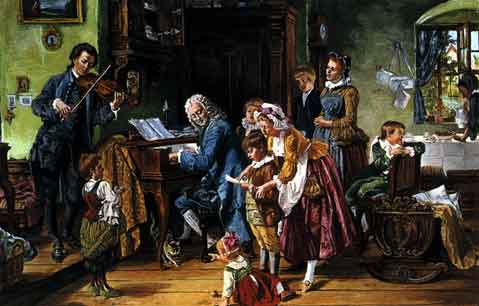- Cantata BWV 20, "O eternity, O word of thunder," is an emotional meditation on eternity, particularly the mournful state of an eternal existence separated from God.
- Cantata BWV 75, "The wretched shall eat that they become satisfied," is about the joy of having true spiritual riches, though one may experience poverty and hardship in this life.
- Cantata BWV 39, "Break your bread with the hungry," which we shall deal with in this post.
How shall I then, Lord, sufficiently repay youThis portion of the church year, known as the season after Pentecost, the Trinity season, or "ordinary" time (time marked day by day), is when the church learns to live out the salvation bestowed on her by God's grace, the great acts of which are celebrated in the first part of the liturgical calendar.
for the good that you have done for my body and soul?
Yes, what I still receive, and that by no means seldom,
since at every hour I can give you praise?
I have nothing of my own but my soul to give to you,
to my neighbour, the desire that I may be of service to him,
to the poor, what you have granted me in this life
and when it pleases you, this weak body to the earth.
I bring what I can, may it please you
that someday I may gather from it what you have promised.
There is no better way to begin this season than to remember that we who have been saved by grace must live grateful and gracious lives.



